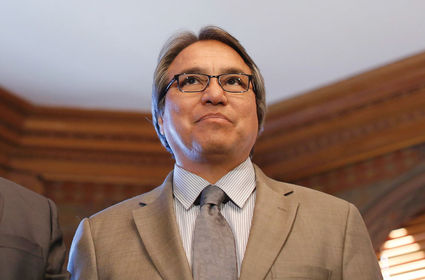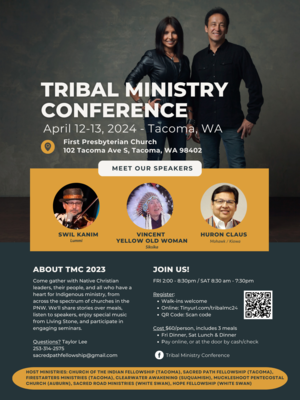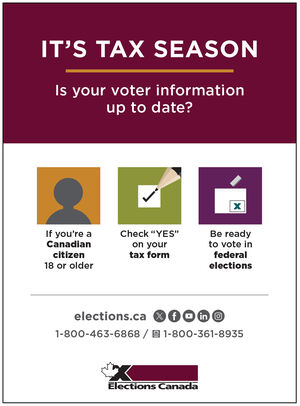UN Special Rapporteur issues statement on conclusion of Canada visit
Last updated 11/23/2013 at 10:49am

United Nations
Mr. James Anaya, UN Special Rapporteur, made a recent trip to Canada, visiting Indigenous territories in British Columbia, Alberta, Saskatchewan, Manitoba, Ontario, and Québec. "Over the last nine days I have met with federal and provincial government authorities, and with First Nations, Inuit, and Métis leaders, organizations and individuals in several parts of the country...."
OTTAWA, ON-The United Nations Special Rapporteur on the Rights of Indigenous Peoples, Mr. James Anaya, made a recent trip to Canada, visiting Indigenous territories in British Columbia, Alberta, Saskatchewan, Manitoba, Ontario, and Québec.
The report states: "Over the last nine days I have met with federal and provincial government authorities, and with First Nations, Inuit, and Métis leaders, organizations and individuals in several parts of the country...I am grateful to the Government of Canada for its cooperation and for the information it has provided, and for allowing me to carry out my visit freely and in an independent manner. I would also like to express my deep gratitude to representatives of indigenous peoples who invited me to visit their territories and communities across Canada, and to those indigenous organizations and individuals who assisted me in organizing parts of my agenda. Finally, I especially want to thank the indigenous peoples with whom I met for sharing with me their stories, concerns and aspirations. I am honored to have been welcomed into their communities and territories, and am truly humbled by their hospitality and warmth."
The report went on to detail that the rapporteur collected "a significant amount of information from indigenous peoples and Government representatives" which will be included in a report to evaluate the situation of Indigenous peoples in Canada and to make a series of recommendations.
"I hope that this report will be of use to First Nations, Inuit, and Métis people, as well as to the Government of Canada to help find solutions to ongoing challenges that Indigenous or Aboriginal peoples in the country face. In advance of this report, I would like to now provide some preliminary observations and recommendations on the basis of what I have observed during my visit."

The UN representative went on to detail issues the Canadian government such as treaty and Aboriginal claims, and improving the social and economic well being of Indigenous peoples. But despite positive steps, the rapporteur stated that "daunting challenges remain."
"From all I have learned, I can only conclude that Canada faces a crisis when it comes to the situation of Indigenous peoples of the country. The well-being gap between Aboriginal and non-Aboriginal people in Canada has not narrowed over the last several years, treaty and Aboriginal claims remain persistently unresolved, and overall there appear to be high levels of distrust among Aboriginal peoples toward government at both the federal and provincial levels.

"Canada consistently ranks near the top among countries with respect to human development standards, and yet amidst this wealth and prosperity, Aboriginal people live in conditions akin to those in countries that rank much lower and in which poverty abounds. At least one in five Aboriginal Canadians live in homes in need of serious repair, which are often also overcrowded and contaminated with mold. The suicide rate among Inuit and First Nations youth on reserves, at more than five times greater than other Canadians, is alarming. One community I visited has suffered a suicide every six weeks since the start of this year. Aboriginal women are eight times more likely to be murdered than non-Indigenous women and Indigenous peoples face disproportionately high incarceration rates. For over a decade, the Auditor General has repeatedly highlighted significant funding disparities between on-reserve services and those available to other Canadians. The Canadian Human Rights Commission has consistently said that the conditions of Aboriginal peoples make for the most serious human rights problem in Canada.
"It is clear to me that Canada is aware of and concerned about these issues, and that it is taking steps to address them...Importantly, Canada has taken action toward the goal of reconciliation between aboriginal and non-aboriginal Canadians with the 2008 government apology for the residential schools and the creation of the Truth and Reconciliation Commission.
"In order for the Government to move forward to address the concerns of indigenous peoples in partnership with them, it is necessary to arrive at a common understanding of objectives and goals that are based on full respect for indigenous peoples' constitutional, treaty, and internationally-recognized rights."
"I look forward to developing more detailed observations and recommendations beyond these initial comments in my report to the Human Rights Council," the rapporteur concluded..."I hope that this process will contribute to ensuring that the Indigenous peoples of Canada can continue to thrive and maintain their distinct ways of life as they have done for generations despite the long shadow of a history of misdealing, enriching Canadian society for the benefit of all."

